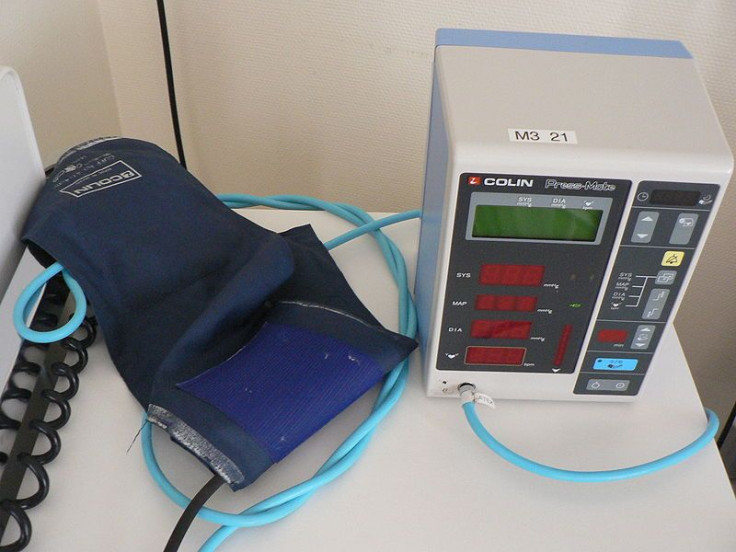High Blood Pressure In Pregnancy Linked To High Stroke Risk; How To Monitor BP While Pregnant

High blood pressure (HBP) is a common medical problem encountered during pregnancy. Women are closely monitored throughout pregnancy for changes in blood pressure to prevent health complications that put the mother and the fetus at risk for health complications. Although women’s BP levels may return to normal post-partum, they are found to be at an increased risk for a future stroke, according to a recent study.
High blood pressure during pregnancy occurs in six to eight percent of all pregnancies in the U.S., according to the National Heart, Lung and Blood Institute (NHLBI). Women who experience gestational hypertension — HBP that develops 20 weeks after being pregnant — are more susceptible to pre-eclampsia later in the pregnancy. This condition influences how well the placenta works and can affect how the baby grows because he or she may not able to get all the necessary nutrients and oxygen. Women who are overweight are at risk for developing pre-eclampsia.
Dr. Aravind Ganesh (a neurology resident at the University of Calgary), Neha Sarna (a medical student), Dr. Rahul Mehta (an internal medicine resident), and senior author Dr. Eric Smith (a stroke neurologist) presented the study at the Canadian Stroke Congress, which reviewed previous studies that examined the risk factors of having high blood pressure during pregnancy. The nine studies monitored women anywhere from one and 32 years post-partum.
A dangerous trend was found throughout all nine studies: women with hypertension during pregnancy faced a significantly higher lifetime risk for stroke. Based on the researchers’ findings, the elevated risk of a stroke could be as high as 40 percent, reports Science Daily.
"We've found that women who had high blood pressure during pregnancy could be at higher risk of stroke, particularly if they had pre-eclampsia, which is a more severe form of high blood pressure," said Dr. Ganesh.
The researchers suggest that while women are closely monitored throughout their pregnancy for changes in BP levels, they should be followed more closely for a re-emergence of hypertension, cholesterol, diabetes, and other factors associated with an increased risk of stroke.
To effectively monitor BP while pregnant, the Baby Center says that women must know their systolic BP — the first or top number in a BP reading, which records a person’s BP as the heart beats and pushes the blood around the body. The second or bottom number in a BP reading records the diastolic BP, which is the BP when the heart relaxes between beats.
Women who have a BP reading of 140/90 or higher for two readings, four hours apart, are most likely to be diagnosed with hypertension. A second indicator is if the second or bottom number in a BP reading is of 110 or more. If the diastolic BP is high on its own, then the woman will likely have a HBP diagnosis.
Doctors are not still not quite sure what causes hypertension during pregnancy, but researchers have speculated that some women might be predisposed to the health condition and being pregnant could trigger the onset.
Women who had normal BP before they became pregnant will likely see their BP return to normal within a few weeks after giving birth. However, these women should do consistent follow-ups to reduce the risk of having a stroke in their lifetime.
If a woman’s BP does not return to normal post-partum, then it is likely she has chronic hypertension. Women with chronic hypertension will be advised to keep taking medication to ensure their blood pressure stays at a healthy level.
"Knowing your blood pressure may be one of the most important steps you can take to reducing stroke risk, something that is particularly true among women with a history of pregnancy-associated hypertension," said Dr. Michael Hill, co-chair of the Canadian Stroke Congress.
To learn more about high blood pressure during pregnancy, click here.



























